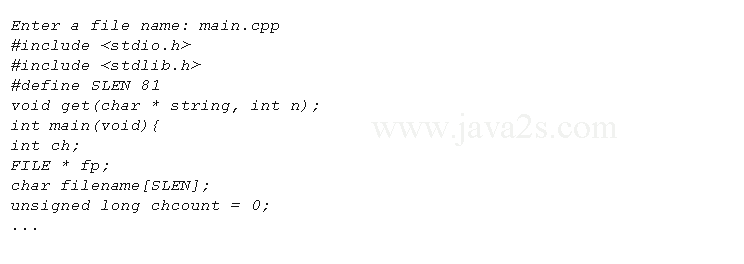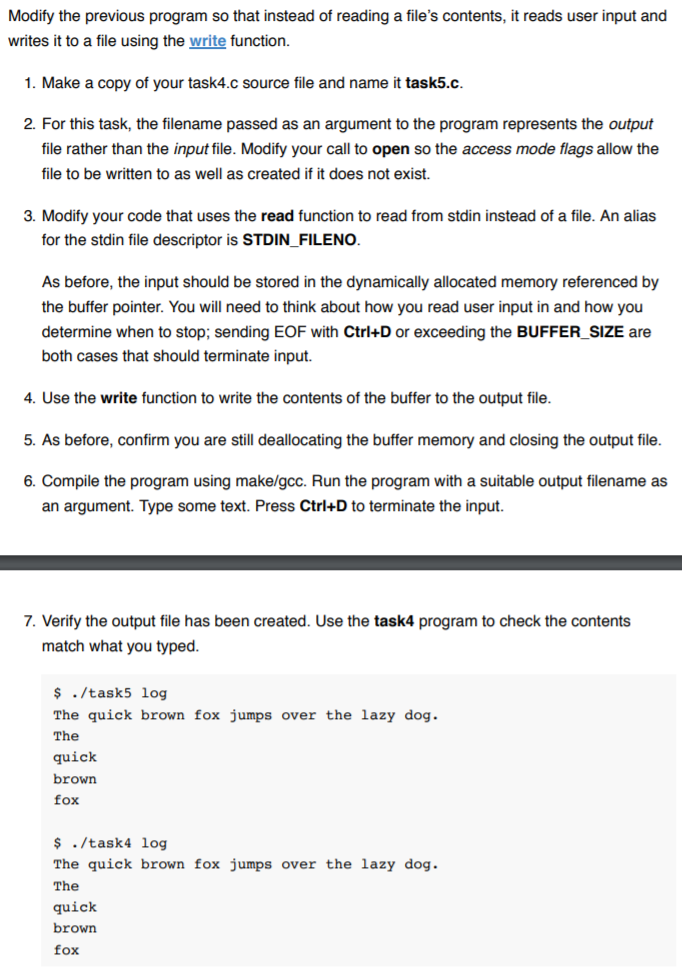
Upon successful completion, fopen() shall return a pointer to the object controlling the stream. Largest value that can be represented correctly in an object of type off_t shall be established as the offset maximum in the Shall be set to describe an initial conversion state. Rule shall be cleared, and the associated mbstate_t object Theįopen() function shall allocate a file descriptor as open() does.Īfter a successful call to the fopen() function, the orientation of the stream shall be cleared, the encoding
#C using fopen to open any file name update#
Successful completion, fopen() shall mark for update the st_ctime and st_mtime fields of the file. If mode is w, wb, w+, wb+, or w+ b, and the file did previously exist, upon Update the st_atime, st_ctime, and st_mtime fields of the file and the st_ctime and st_mtime Mode is w, wb, a, ab, w+, wb+, w+ b, a+, ab+, orĪ+ b, and the file did not previously exist, upon successful completion, the fopen() function shall mark for The error andĮnd-of-file indicators for the stream shall be cleared. When opened, a stream is fully buffered if and only if it can be determined not to refer to an interactive device. Positioning function, unless the input operation encounters end-of-file. Input without an intervening call to fflush() or to a file positioning function ( fseek(), fsetpos(), or rewind()), and input is not directly followed by output without an intervening call to a file However, the application shall ensure that output is not directly followed by When a file is opened with update mode ( '+' as the second or third character in the mode argument), both inputĪnd output may be performed on the associated stream. To the file to be forced to the then current end-of-file, regardless of intervening calls to fseek(). Opening a file with append mode ( a as the first character in the mode argument) shall cause all subsequent writes

Opening a file with read mode ( r as the first character in the mode argument) shallįail if the file does not exist or cannot be read. a+ or ab+ or a+b Append open or create file for update, writing at end-of-file.Ĭharacter 'b' shall have no effect, but is allowed for ISO C standard conformance. w+ or wb+ or w+b Truncate to zero length or create file for update. r+ or rb+ or r+b Open file for update (reading and writing). a or ab Append open or create file for writing at end-of-file. w or wb Truncate to zero length or create file for writing. If the string is one of the following, the file shall be opened in the indicated


The fopen() function shall open the file whose pathname is the string pointed to by filename, and associates a This volume of IEEE Std 1003.1-2001 defers to Requirements described here and the ISO C standard is unintentional. The functionality described on this reference page is aligned with the ISO C standard.


 0 kommentar(er)
0 kommentar(er)
